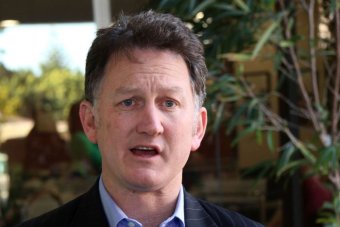The Australian Medical Association has urged the WA Government to prioritise improving cancer treatment above saving money, after the release of a report scathing about the quality of care.
A report leaked yesterday by the State Opposition found adult cancer treatment in Western Australia’s public hospitals had been left in crisis after the move of services to Perth’s new Fiona Stanley facility.
That report, which followed the commissioning of a 20-member taskforce of leading health professionals to scrutinise issues confronting adult cancer services, warned of fragmented care, lengthy delays in treatment and compromised patient safety.
The report, which Health Minister Kim Hames said was a draft version he was yet to read, made scores of recommendations such as calling for the urgent reinstatement of specialist cancer services.
It also urged the Government to remove hiring restrictions for cancer positions, warning limitations put in place as part of budget savings measures had caused significant problems.
“The rigidly applied [full-time equivalent] cap is causing negative distortions in the system of cancer care,” it said.
“Considerable amounts of expensive and scarce specialist time is being spent trying to find a way to appoint critical staff even though funding is available for the positions.”
Dr Hames yesterday denied staffing levels were an issue, saying Fiona Stanley Hospital had enough people to cope with demand.
“We’ve got lots of staff, in fact we have overstaffed levels for a standard hospital of that size … so no, it’s never been an issue of staffing,” he said.
But AMA WA president Michael Gannon said the Government needed to prioritise patient care above anything else and make sure savings measures were not impacting treatment.
“Quite simply the money needs to be found,” Dr Gannon said.
“This is no time to be talking about FTE freezes, it needs to be fixed and it needs to be fixed quickly.
“We’re talking about some of the most scared and needy people in the health system.”

